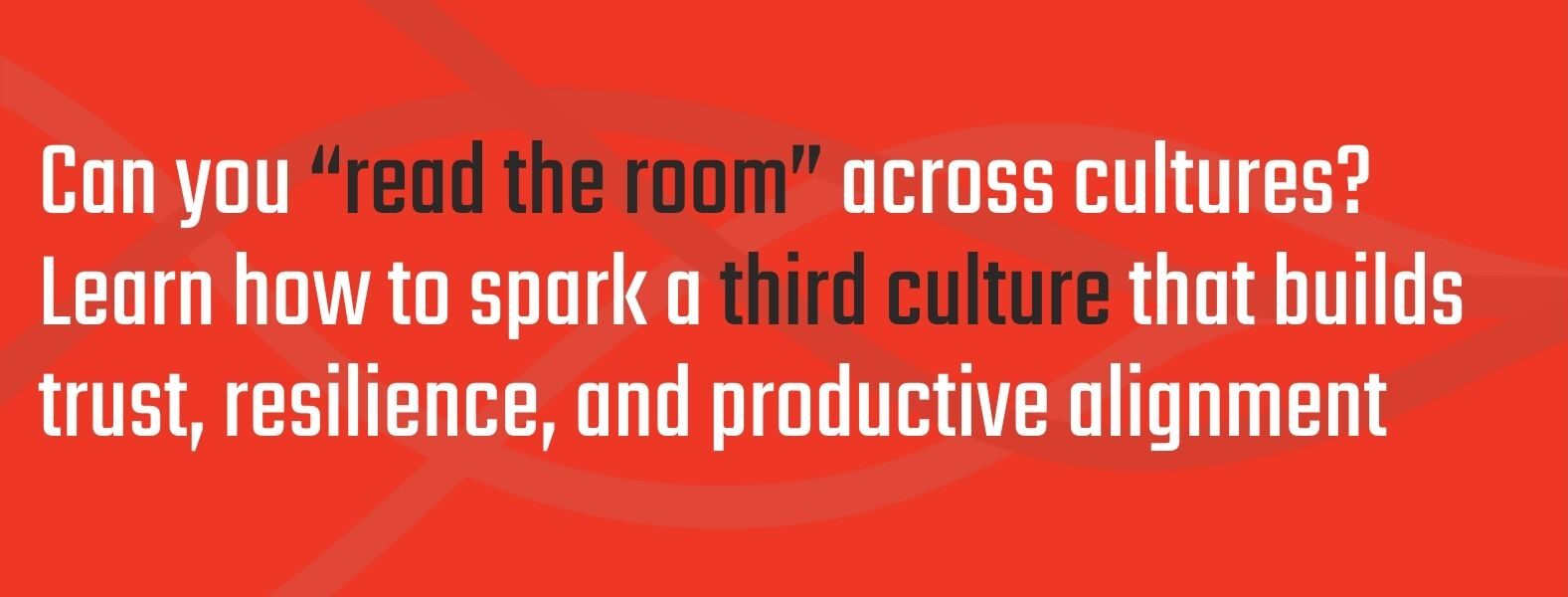In a monsoon-soaked office in Bangalore, I “read the room” and unpacked a box of granola bars from my mother. What happened next reshaped how we understood each other – and we started building a “third culture” where we could all belong to and get things done.
In the early months of my arrival as an expat in Bengaluru (back in 2005, it was still called Bangalore), I was a bit of an anomaly to the local Indian professionals around me. Not just because I came from Boston, but because of how I looked — a natural redhead with the complexion to match. I was in my 40s, single, and had moved to India on my own. Instead of taking the easier route of living in the isolated expat enclaves on the city’s outskirts, I chose to settle right in the middle of town. I walked to my tennis club in tennis whites every morning before work, which earned me more than a few puzzled glances from my neighbors.
At the office, I was the “Vice President from Boston.” I had a remit that promised to be quite ground-breaking for the Indian management team. I was there to establish our firm’s first department to be headed in Bangalore, not Boston. True success for my initiative required that I build a team whom the entire multi-national enterprise could trust to create policy based on our company’s values and execute decisions with autonomy leading this corporate function in an open, collaborative way that headquarters could still trust in three years when I would be sitting thousands of miles away.
While I was in Bangalore, I became the “go-to” expert on all things Brokerage IT and Strategic Vendor partnerships. In fact, I was seen as a walking, talking encyclopedia — back when “just Google it” was not yet a global default. I was happy to help local management team to avoid pinging their Boston-based managers for fundamental questions. In many ways, I was comfortable being the “white elephant” in the room — a bit rare, slightly out of place, and observed from a distance. That social distance gave me cover to hide my own uncertainties about this new corporate and domestic life I was leading there.
But the distance came with a cost that made me a little uncomfortable. I was shown a disproportionate level of deference — not out of intimidation, but out of respect. This was a high-context culture, after all — rich in unspoken cues and deeply-rooted hospitality norms. I couldn’t simply tell my colleagues to “relax” around me or try to artificially insert myself into their tight-knit circles without unintentionally reinforcing the very hierarchy I wanted to dissolve. I didn’t know how we would do it, but I was certain we had to create a new way of engaging – something that wasn’t quite Boston, and wasn’t quite Bangalore either. A “third culture,” if you will, where we could each be authentically our professional selves and respectfully accommodate and adjust to create our optimal collaboration culture. This would support an improved, open communication flow of ideas, issues and concerns.
Ironically, the breakthrough came not in a leadership workshop or a strategy session, but in the form of a drenching South Indian downpour.
It was around 6:30 PM, pitch dark, and the skies cracked opened and delivered the kind of rain that doesn’t fall gently, but hurls itself at the earth. In those days (and in some parts of the city, maybe still today), the drainage systems couldn’t keep up. Streets began to flood just as thousands of office park employees were spilling out of their buildings. Cars, buses, vans, people wading through knee-deep water, on foot and dragging their two-wheelers next to them — it looked like a very wet, very eerie Halloween parade.
I looked out over our office floor and noticed no one making a move to leave. I was silently debating whether I should brave the chaos and make a run for it — I had a car and driver waiting down in the garage, after all — when Vikram, a colleague junior to me, walked over.
He quietly suggested that I wait a couple of hours before heading out. That was his way of saying, “This is serious, and I’m concerned for your safety.” In that understated moment, he reached beyond our usual workplace formality. I was touched and felt included.
But then I wondered: what about dinner for these folks? Family meals were sacred here. Everyone had made it clear that dinnertime at home was a top priority. Then I remembered — that very day, a package had arrived from my dear (now departed) mother. She had sent me a care package filled with American snacks: granola bars, cookies, all wrapped in aluminum foil to make sure that these processed food snacks remain fresh on their journey across the seas. So, I brought the hefty box out into the cubicle area and started unpacking it to offer the contents around. It was, let’s be honest, a pretty sad excuse for a proper Indian dinner — but it was from my mom, and it was offered with heart. And somehow, it was just right. We all sat together, having what I can only describe as an intercultural picnic, waiting out the storm.
Vikram’s gesture of care — stepping outside his expected role to protect me — and my offering of food from home — something deeply personal and entirely exotic — were the two simple, authentic acts at the right moment for that room, that broke the spell. That evening, we gently lowered the boundaries of our respective cultures and started to explore something new. We started weaving a shared culture of collaboration, empathy, and mutual curiosity — not quite Boston, not quite Bangalore, but uniquely ours to co-create.
✨ If you’re ready to go beyond managing and start mastering global leadership, let’s connect.

